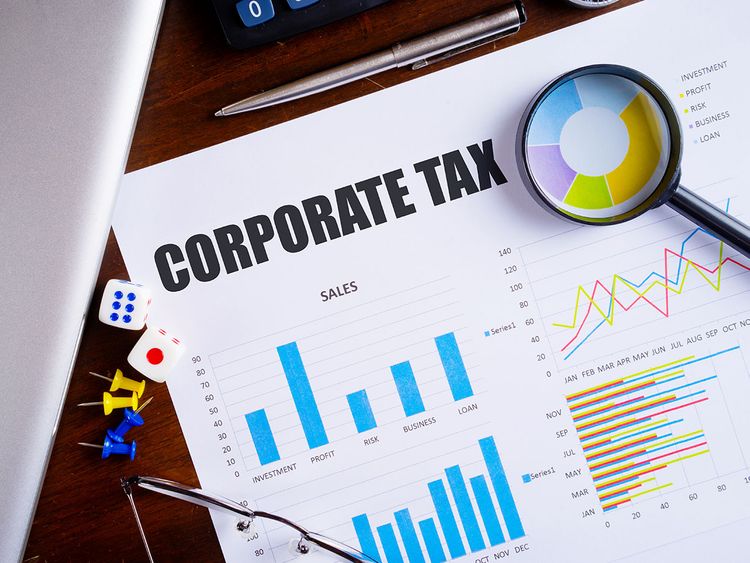The new corporation tax system will exempt many different sorts of businesses and organizations. Many global enterprises relocate to or establish new operations in the UAE every year to take advantage of the country’s advantageous tax laws, cutting-edge infrastructure, and proximity to the largest economies in the Middle East, Asia, and Europe. Nonetheless, businesses that operate in the UAE will be significantly impacted by the recent announcement of the implementation of corporate tax (CT). The Federal-Decree Law No. 47 of 2022, one of the most recent revisions to UAE law, will shortly make corporations, including free zone entities, taxable in the UAE. According to the law, businesses must abide by corporate tax standards beginning on or after June 1, 2023, when their fiscal year officially begins.
Yet, not all businesses will be impacted by the new UAE corporation tax, and many won’t even be required to pay it. Learn more about the new company tax in the UAE and its implications for you.
Below are some of the topics to know about the corporate tax in UAE:
- What is corporate tax in the UAE for 2023?
- What Are the Characteristics of Corporate Tax?
- Taxes on businesses operating in free zones?
- Which businesses will be exempted?
- Will there personal income taxes in Dubai?
- Will Dubai impose a capital gains tax on dividends?
The United Arab Emirates operated as a country with very low taxes for a very long time. The majority of businesses have never had to pay any kind of corporation tax, and citizens do not pay income taxes on their earnings.
What is Corporate Tax in the UAE for 2023?
For all businesses in the UAE with income over 375,000 AED (about $100,000 USD), the corporate tax rate will rise to 9% in 2023. Businesses with revenue below this threshold continue to pay no taxes at all.
As per Global Minimum Corporate Tax Rate agreement, the UAE declared that significant MNCs with income of more than EUR 750 million will be subject to a 15% tax plus corporate tax. Legal entities with renowned legal persons, such as LLCs, PSCs, PJSCs, LLPs, and others, will be subject to tax.
The majority of businesses will need to start saving money aside to pay their taxes because the new UAE corporation tax will go into force in the tax year beginning June 1st 2023.

Characteristics of Corporate Taxation
Corporate taxes, tax-free zones, VAT systems, and the absence of the federal income tax are just a few of the policies that make up Dubai’s business tax regime. Discover important aspects of the tax system by continuing to read.
Who can pay corporate tax in UAE?
Legal entities with renowned legal persons, such as LLCs, PSCs, PJSCs, LLPs, and others, will be subject to tax. Also, any foreign legal entity that makes income in the UAE but is a resident of another nation would be charged. Free zones are legally compliant and do not pay corporate taxes in exchange. This also applies to free zone companies who do business with the mainland. Both UAE residents and non-residents may be subject to corporate taxes legislation.
Tax amounts
A business will pay no tax if its annual revenue is less than AED 375,000 and 9% of its annual revenue over AED 375,000 will be taxed. Larger international corporations will also pay a varied tax rate due to their unique business circumstances.
Who is not liable to pay corporate tax?
Given their critical role and contribution to the social and economic growth of the UAE. There are some specific types of firms or organizations that are exempt from the UAE corporate tax. These organizations are known as Exempt People, and they consist of:
- Government Entities,
- Government Controlled Entities that are specified in a Cabinet Decision
- Exempt if notified to the Ministry of Finance (and subject to meeting certain conditions)
- Entities that are Public Benefit Entities
- If you apply to the Federal Tax Authority and get approval, you are exempt (and subject to meeting certain conditions)
Taxes on businesses operating in free zones?
Businesses and owners in free zones are waiting in expectation for further clarification over the definition of “qualified revenue” for “free zone individuals” as UAE’s corporate tax compliance registrations open up.
Individuals living in free zones may be eligible to get a tax exemption of 0% on their admissible income under the UAE Corporation Tax, according the Federal Decree Law. However, according to preliminary instructions from the UAE Ministry of Finance, this qualifying revenue must adhere to strict criteria and can come from both onshore and offshore sources. So, there is an urgent need for thorough and in-depth instruction on this important topic.
The rule states that:
- If a “free zone person” meets the criteria to become a “qualified free zone person” (QFZP), then the income they receive is refer as “qualifying income” and is subject to tax at a rate of 0%.
- A free zone enterprise and a mainland company cannot transfer tax losses if the tax rate is zero.
Which businesses won’t be subject to corporate tax or will be exempted in UAE?
The new corporation tax system will exempt many different sorts of businesses and organizations.Each organization must consult with a certified professional to determine whether their entity qualifies for an exception. This new corporation tax system won’t affect the following commercial entities.
- Companies in the UAE that exploit natural resources. They will still be subject to separate tax decrees based on their industry.
- Businesses registered in free zoneswill continue to adhere to the tax regulations set forth by that free zone.
- The central government (including its divisions), government-owned businesses in the UAE, and other governmental organizations.
- Private, regulated social security and pension funds.
- Licensed charities and public benefit organizations.
- Investment funds.
It’s crucial to remember that individuals will continue to pay no income tax in the UAE if their profits come from a personal source (such as a salary) and do not call for a business license.
Will there be personal income taxes in Dubai?
No, neither Dubai nor the rest of the UAE have any present intentions to tax individuals’ personal income. The 5% VAT tax that everyone in Dubai must pay on goods and services for consumption serves as the only type of personal income tax.
Will Dubai impose a capital gains tax on dividends?
The United Arab Emirates and Dubai do not currently have any intentions to impose a capital gains tax on profits. Business owners and investors do not now pay capital gains tax on dividends received from the companies they have invested in (March 2022).
Be sure that your company complies with all the UAE corporate tax requirements
If you are not familiar with the current tax laws in the UAE, it can be very difficult to understand tax legislation. Non-compliance with the new corporate tax can result in penalties or loss of ability to operate in the UAE. Foreign-owned businesses operating out of free zones may find this particularly perplexing. Firms should seek professional advice to understand how the new tax legislation will impact their business.
For more info, reach out to us:
www.bizvirtue.ae | info@bizvirtu.ae | +971 50 905 0884 | 97145709205





